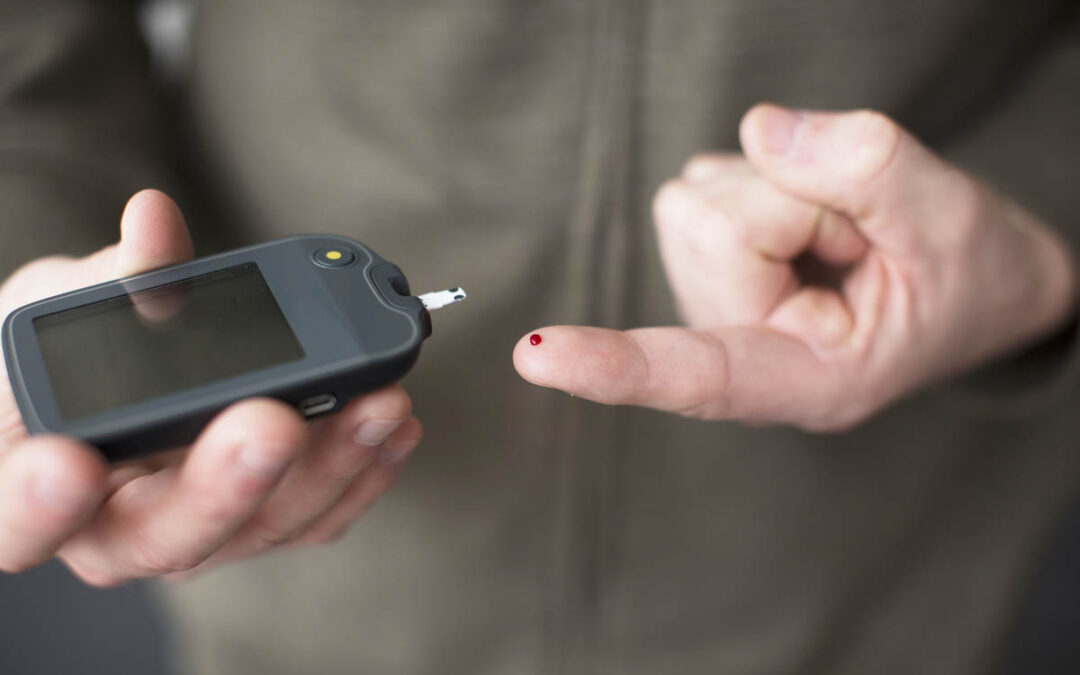Navigating the challenge of diabetes requires the right support and knowledge. Our no-nonsense guide simplifies finding help for diabetes by pinpointing practical support networks, essential insurance information, and a healthcare team geared toward your needs. You’ll also discover targeted education and lifestyle adjustments that are key to thriving with diabetes.
Dive in and take the guesswork out of managing your health.
Key Takeaways
- Diabetes support networks play a crucial role in the effective management of the condition, providing emotional, practical, and community support through family, friends, online communities, and local support groups.
- Navigating health insurance options for diabetes care, including government programs, private plans, and financial assistance programs, is essential for easing the financial burden and accessing necessary treatment and medications.
- The professional healthcare team for diabetes management typically includes a primary care physician, endocrinologist, and certified diabetes educator, working together to provide comprehensive and personalized care.
Diabetes Support Networks

The management of diabetes is not a task that can be done alone, it requires the support of others. A crucial aspect of this journey is your network for diabetes care, which acts as a link between you and those who understand the challenges of living with this condition. It goes beyond providing medical assistance, offering both emotional and practical aid as well as creating a sense of belonging within a community.
Family and Friends
The backbone of your support system is often built by those closest to you, family and friends. Not only do they provide emotional reinforcement, but also offer practical aid in various forms such as grocery shopping and meal planning. They understand the challenges you face on your health journey and are there to help.
Having this strong support network can greatly improve motivation and adherence to a healthy lifestyle, leading to better overall health outcomes. It can serve as a preventive measure against potential health issues that may arise.
Online Communities
The advancement of technology has broadened our support network beyond just those around us. Virtual communities are now available for individuals with diabetes to communicate and share their experiences, guidance, and tools. These online platforms allow for real-time interactions where members can offer advice on managing expenses related to medical treatment or celebrate achievements like improved HbA1c levels. This enables a vast pool of information exchange among community members in an accessible manner.
Local Support Groups
Joining a local support group can provide valuable reinforcement for your diabetes management plan. These groups offer the opportunity for face-to-face interaction, educational workshops, and access to resources within your community.
The connections and understanding you develop in these groups can greatly aid in effectively managing your diabetes. The shared experiences with others dealing with similar challenges also add an extra layer of support to help you stay on track toward better health.
Navigating Health Insurance for Diabetes Care

Navigating the various health insurance options available is a crucial component of managing diabetes. Selecting the right plan can alleviate some of the financial strain associated with necessary services, supplies, and medications for diabetes care. It is important to understand what government health insurance programs, private plans, and assistance programs provide in order to make an informed decision regarding your healthcare coverage.
Government Health Insurance Programs
Government-sponsored healthcare programs such as Medicare, Medicaid, and the Children’s Health Insurance Program (CHIP) offer substantial coverage for managing diabetes. These programs provide various important services for diabetes care including self-management training, prevention programs, and medication coverage. With this support from these initiatives, access to comprehensive health care is increased for individuals with diabetes.
Private Health Insurance Plans
Private health insurance plans offer a variety of options for diabetes care. It is important to carefully consider the coverage and cost associated with these plans in order to make an informed decision that meets your specific needs. Evaluating the variations among different plans can help you determine which one best suits you in terms of both diabetes-related services and overall expenses.
Financial Assistance Programs
Financial support programs can provide essential relief for individuals struggling with the high costs of managing diabetes. These beneficial initiatives, provided by nonprofit groups, pharmaceutical corporations, and state-run entities, are designed to lower expenses related to medication purchases, acquiring necessary supplies for controlling diabetes symptoms, and overall care associated with this chronic illness.
Professional Diabetes Healthcare Team
A diabetes healthcare team, which is composed of different professionals, plays a crucial role in guiding you through your diabetes journey. This team usually includes a primary care doctor, an endocrinologist and a certified diabetes educator who each offer distinct expertise and insights for comprehensive and tailored treatment for managing your condition.
Primary Care Physician
Your initial point of contact in managing your diabetes is typically your primary care physician. They have the role of providing you with essential knowledge about caring for diabetes, administering crucial laboratory exams, and collaborating with other experts to establish a well-rounded treatment plan.
Endocrinologist
Endocrinologists are experts in addressing hormone disorders, such as diabetes. They have a crucial role in overseeing intricate cases of diabetes by offering specific knowledge and personalized treatment strategies based on individual symptoms and conditions.
Certified Diabetes Educator
Having a certified diabetes educator on your healthcare team is crucial for managing your condition. Their specialized knowledge and practical know-how in caring for individuals with diabetes can be an invaluable asset, whether it’s understanding medication instructions or making adjustments to daily habits. They are equipped to help you effectively manage your health through proper guidance and support.
Diabetes Education and Resources

Effective management of diabetes requires education and knowledge. Valuable resources are available through organizations such as the American Diabetes Association (ADA), Centers for Disease Control and Prevention (CDC), and the National Institute of Diabetes, Digestive, and Kidney Diseases (NIDDK). These resources include online articles, webinars, support groups, educational materials like brochures or guides, and workshops/conferences that provide information on managing your condition.
By taking advantage of these informative tools from reputable sources mentioned above, individuals can gain essential skills to successfully manage their diabetes. With this acquired knowledge comes better understanding leading to an improved quality of life when dealing with this chronic health issue.
American Diabetes Association (ADA)
The ADA is a top resource for individuals who have diabetes. They provide access to research, education, and advocacy materials that can aid in the management of your condition and advocate for improved healthcare options.
Centers for Disease Control and Prevention (CDC)
The CDC provides a variety of resources dedicated to the prevention and management of diabetes. They offer initiatives designed to delay or prevent type 2 diabetes, while also stressing the importance of addressing mental health as an essential aspect of managing this condition.
National Institute of Diabetes and Digestive and Kidney Diseases (NIDDK)
The NIDDK has a wealth of resources available for financial aid for diabetes care. They offer extensive information on successful prevention and treatment methods for diabetes, which can greatly enhance your knowledge and comprehension of managing the condition effectively.
Lifestyle Changes for Diabetes Management

Proper management of diabetes requires making necessary adjustments in one’s lifestyle. Essential factors such as maintaining a balanced diet, engaging in physical activity, and managing stress are critical for effective control of the condition. By incorporating these changes into daily routines, individuals can experience improved blood sugar levels, enhanced mental well-being and better overall health.
Healthy Eating
Proper nutrition is a crucial component of effectively managing diabetes. The types of food you consume can greatly affect your blood sugar levels. By selecting nutritious options like whole grains and lean proteins, you can better control your blood sugar and maintain an optimal weight through dietary choices.
Physical Activity
Physical activity is an essential aspect of managing diabetes. It plays a crucial role in weight management, blood sugar regulation, and overall well-being. Consistent exercise can lower your risk for developing diabetes and promote improved heart health.
Stress Reduction
Managing stress is often overlooked, but it plays a crucial role in diabetes care. High levels of stress can have negative effects on blood sugar levels and may lead to low blood sugar, ultimately impacting overall health and increasing the risk of developing complications related to diabetes.
Incorporating mindfulness practices like yoga and meditation into your daily routine can help reduce stress and improve your well-being. By managing stress effectively, individuals with diabetes can also prevent fluctuations in their blood pressure which are harmful to their overall health.
Summary
The management of diabetes is a journey that you need not face alone. With the aid of a strong support system and competent healthcare professionals, there are various tools available to assist you at every stage. It’s important to remember that diabetes is an ongoing journey rather than just reaching a destination, but with proper resources and guidance, you can navigate this path confidently and positively.
Frequently Asked Questions
How can I get help for diabetes?
You can get help with the costs of insulin and medication through patient assistance programs from pharmaceutical companies. You can also find diabetes self-management education and support programs through organizations like the Association of Diabetes Care & Education Specialists or the American Diabetes Association.
It’s important to explore local health departments and clinics for medical care at little or no cost.
What is the first thing to do when diagnosed with diabetes?
The initial step following a diabetes diagnosis is to schedule an appointment with your primary care physician. Your doctor will discuss the fundamentals, including information about diabetes, the implications of high blood sugar on your health, prescribed medications and their effects, recommended dietary modifications, physical activity recommendations, and lifestyle habits such as alcohol consumption and smoking.
It is crucial to seek medical advice in order to fully understand the necessary adjustments that need to be made in one’s lifestyle to manage diabetes effectively.
When is it too late to reverse type 2 diabetes?
It’s never too late to stop the progression of type 2 diabetes and work towards improvement, even if the condition has been present for a long time. Starting with weight loss and making lifestyle changes can significantly impact the management of diabetes, offering hope for improvement and reduced medication dependency.
What is the role of a primary care physician in diabetes care?
The main responsibility of a primary care physician in managing diabetes is essential, as they are typically the initial source of assistance for people with this condition. Their duties include imparting knowledge, conducting necessary examinations, and collaborating with specialists to ensure proper treatment for individuals affected by diabetes.
What is the importance of a support network in managing diabetes?
A vital aspect of effectively managing diabetes is having a support network, which offers emotional assistance, and practical aid and fosters a sense of community. These elements play an essential role in helping individuals manage their condition more efficiently.

